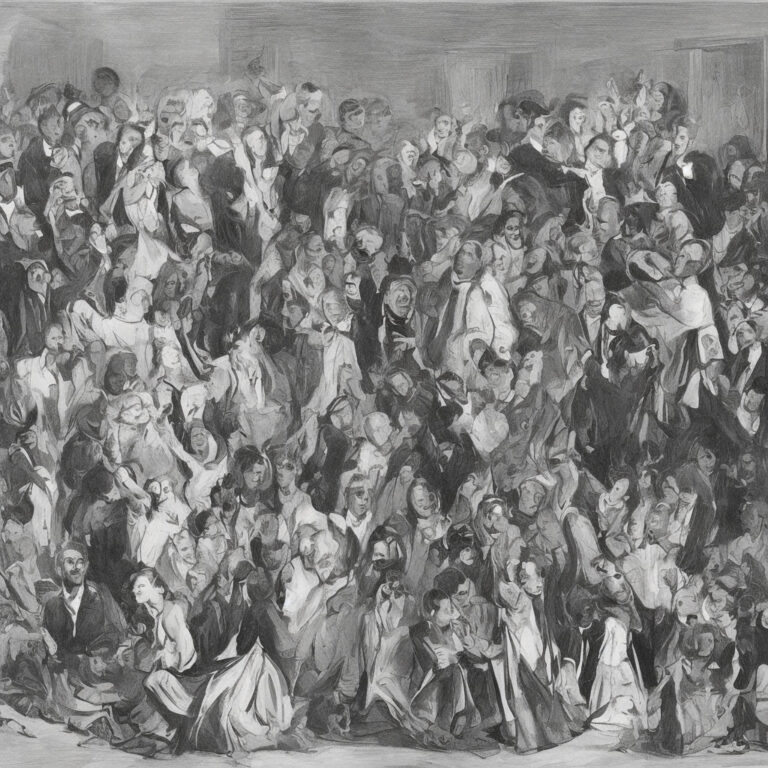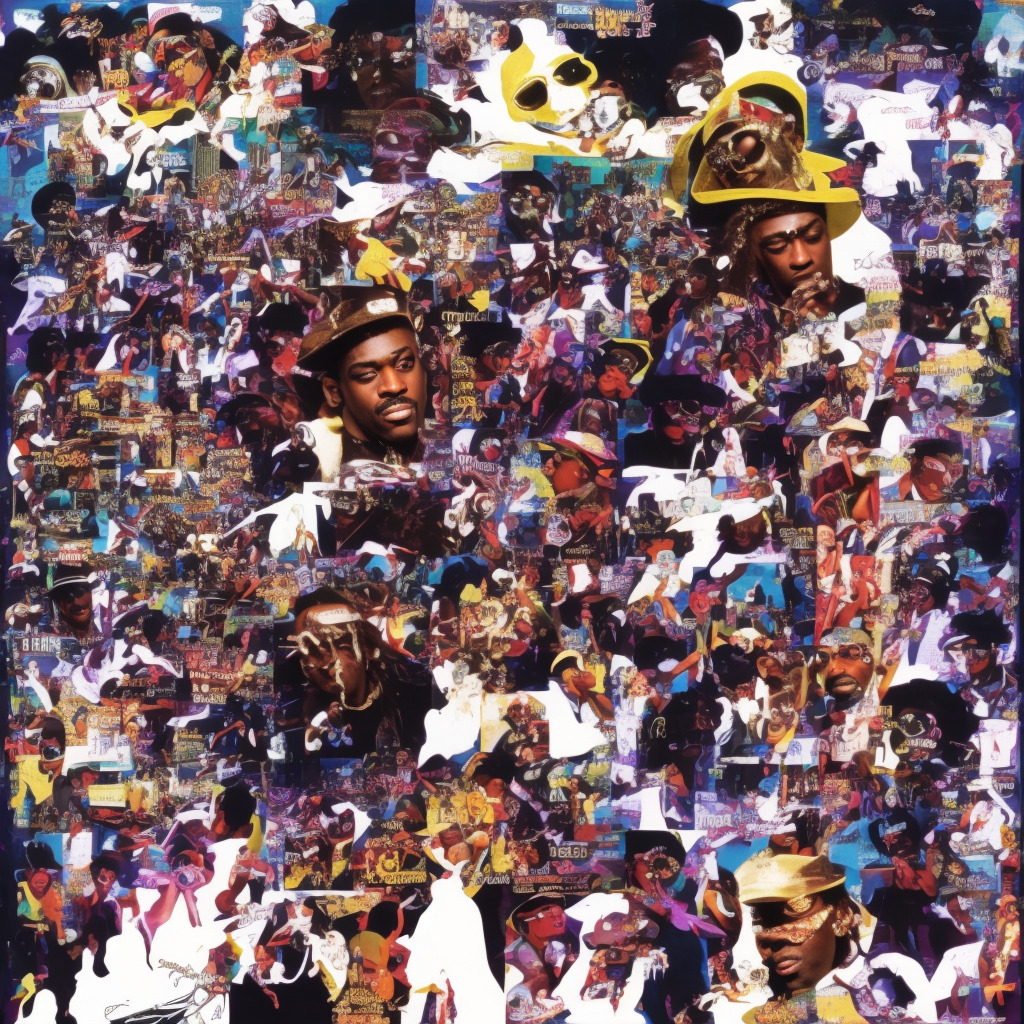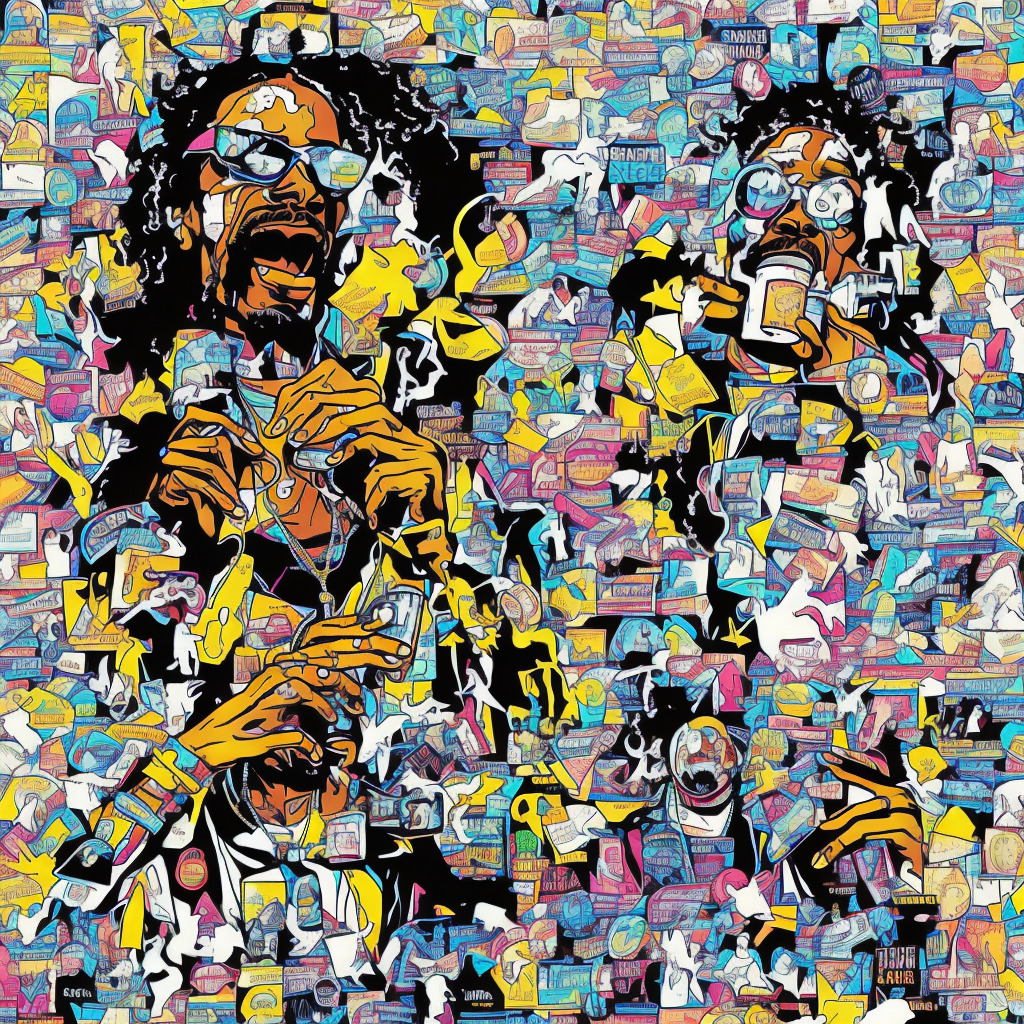🎶 #Fugees put a fresh spin on “Killing Me Softly” in ’96! 🔄 Did you know it’s a cover of Lori Lieberman’s ’72 hit, inspired by Don McLean’s concert? 💡 Feel the vibes! 🌟 #MusicTrivia #90sRnB 🎧🖤 Read about it: tinyurl.com/yjp93492
A Soulful Rendition That Stole Our Hearts
“Killing Me Softly: Fugees’ timeless hit that blended soul, reggae, and hip-hop, captivating hearts and cementing their legacy in music history.”

Fugees, a hip-hop group from the early ’90s, consisting of Lauryn Hill, Wyclef Jean, and Pras Michel, made quite an impact on the music scene. Known for their eclectic blend of hip-hop, soul, and reggae, Fugees had a unique sound that resonated with fans across the world. One song that truly showcased their talent and versatility was “Killing Me Softly,” a single from their second album, “The Score” (1996).
Originally written in 1971 by Charles Fox and Norman Gimbel, the song had already seen success with Roberta Flack’s rendition in 1973. Fugees, however, gave the classic a fresh spin, incorporating their signature reggae and hip-hop influences. Lauryn Hill’s soulful and hauntingly beautiful vocals in “Killing Me Softly” brought a raw, emotional depth to the song, solidifying its status as an unforgettable hit. The song stayed at the top of the Billboard Hot 100 chart for several weeks and became one of Fugees’ most successful singles.
Despite the group’s impressive success during their time together, their journey was not without challenges. Their first album, “Blunted on Reality” (1994), received mixed reviews and did not perform well commercially. This setback, however, only fueled their determination to make a stronger sophomore album. The group would go on to achieve massive success with “The Score,” which also featured hits like “Ready or Not” and “Fu-Gee-La.” The album won the Grammy Award for Best Rap Album in 1997, an achievement that solidified their status as music legends.
While Fugees’ time together was relatively short-lived due to internal conflicts, each member went on to achieve success in their individual careers. Lauryn Hill, in particular, became a widely respected solo artist, releasing her critically acclaimed album, “The Miseducation of Lauryn Hill” in 1998. Wyclef Jean also enjoyed a successful solo career, dabbling in various genres and collaborating with other artists.
While it’s true that the Fugees’ career had its fair share of ups and downs, and their time together as a group was marred by internal strife, it’s impossible to deny the lasting impact they had on the music industry. Their rendition of “Killing Me Softly” remains an iconic classic that continues to captivate audiences and will undoubtedly be cherished for generations to come.
Charting the Success of a Timeless Classic
The Fugees’ “Killing Me Softly” conquers global charts and hearts alike, earning prestigious awards and immortalizing itself as a timeless R&B classic.

“Killing Me Softly” by the Fugees catapulted into the charts after its release on May 31, 1996, and took the world by storm. This R&B hit, which is a remake of Roberta Flack’s 1973 classic, quickly gained traction and became an instant classic for the Fugees as well.
Upon its initial release, the song debuted on the Billboard Hot 100 chart at an impressive position of #42. However, it didn’t stop there. As the song gained more airplay and fans couldn’t help but sing along to Lauryn Hill’s mesmerizing vocals, “Killing Me Softly” went on to peak at #2 on the Billboard Hot 100 chart. It held this position for an impressive four weeks, showcasing the song’s widespread appeal and staying power.
But the success didn’t stop at the US charts. The song also earned the top spot in several countries, including the UK, Australia, France, Germany, Ireland, the Netherlands, and New Zealand. It spent a total of five non-consecutive weeks at #1 on the UK Singles Chart, adding another remarkable achievement to the Fugees’ repertoire.
“Killing Me Softly” didn’t just dominate the charts, but it also received a number of prestigious awards and accolades. The song earned the Fugees a Grammy Award for Best R&B Performance by a Duo or Group with Vocal in 1997. Additionally, the track was ranked #25 on VH1’s list of the 100 Greatest Songs of the ’90s in 2007, further solidifying its place in music history.
Notably, the song’s overwhelming success also contributed to the Fugees’ album “The Score” achieving multi-platinum status. The album itself peaked at #1 on the Billboard 200 chart and has since been certified 6x Platinum in the US by the RIAA.
In conclusion, the Fugees’ “Killing Me Softly” has undoubtedly left an indelible mark on the music landscape. With its chart-topping success, numerous accolades, and undeniable impact on the band’s career, it remains a timeless classic that continues to resonate with generations of music lovers.
Dissecting the Emotive Lyrics
Singing my life with his words
Killing me softly with his song
Killing me softly with his song
Telling my whole life with his words
Killing me softly with his song
The lyrics of “Killing Me Softly” by Fugees convey a poignant and emotional story about the power of music and the impact it can have on the listener. Although the song was originally written in 1971 by Charles Fox and Norman Gimbel and performed by Roberta Flack, Fugees’ rendition in 1996 added a fresh and contemporary twist to the classic.
The lyrics describe the experience of listening to a song that seems to reach deep into one’s soul, capturing the essence of one’s experiences, emotions, and life story. This song beautifully encapsulates the power of music to transcend language and create a profound connection between the artist and the audience.
In the context of the mid-90s, when the Fugees released their version of “Killing Me Softly,” the world was going through significant shifts. The end of the Cold War, the rise of the internet, and the emergence of globalization all contributed to a rapidly changing social and political landscape. Music, as always, played a crucial role in reflecting and shaping the spirit of the time. The Fugees, known for their socially conscious and politically charged lyrics, were undoubtedly influenced by the events of their era. And yet, with “Killing Me Softly,” they chose to focus on the timeless and universal theme of the power of music to connect us all.
While the lyrics of “Killing Me Softly” may not directly pertain to any specific event or trend of the mid-90s, the impact of the song transcends time and context. It serves as a reminder that, regardless of the era or the social and political issues at hand, music has the power to touch our hearts, evoke emotions, and unite us through our shared human experiences.
A Visual Masterpiece: The ‘Killing Me Softly’ Music Video
“Timeless Fusion: Fugees’ ‘Killing Me Softly’ video melds hip-hop, soul, and homage to original, captivating fans across generations.”
The music video for Fugees’ iconic cover of “Killing Me Softly” is a visual delight that captures the essence of the band’s transcendent fusion of hip-hop and soul. Directed by renowned filmmaker Aswad Ayinde, also known as Brother Ash, the video showcases the band’s captivating performance while incorporating visual elements that pay homage to the original 1973 Roberta Flack song.
Shot in black and white, the music video has a timeless quality that complements the song’s classic roots. Visually, it’s a blend of performance footage, featuring the band members Lauryn Hill, Wyclef Jean, and Pras Michel, singing and rapping against a plain backdrop, interspersed with scenes of audiences enjoying their performance. The simplicity of the video’s setting allows the focus to remain on the Fugees’ passionate delivery of the song.
One of the standout artistic choices in the video is the use of slow-motion shots. This technique effectively emphasizes the emotional weight of the lyrics, as well as the incredible talent of the band members. The slow-motion scenes work particularly well during Lauryn Hill’s powerful vocal performance, creating an atmosphere of raw emotion and vulnerability.
Another notable aspect of the video is the way it pays tribute to previous versions of the song. The original “Killing Me Softly” artwork, which features a silhouette of a woman’s face, is cleverly incorporated into the video. In several shots, Lauryn Hill’s face is partially obscured by shadows, creating a silhouette effect that is reminiscent of the original artwork. This subtle nod to the song’s history adds depth and meaning to the video.
Though there isn’t much information available about the budget and production details for the “Killing Me Softly” video, it’s clear that the creative team behind the video didn’t need a massive budget or elaborate special effects to create a visually striking, memorable piece of art. The video’s artistic merit lies in its simplicity and the band’s undeniable charisma, which shines through in every frame.
In addition to the official music video, “Killing Me Softly” has inspired countless fan-made videos and YouTube tributes. Amateur filmmakers and musicians alike have been drawn to the song’s timeless appeal, creating their own visual interpretations and cover versions. These fan-made projects serve as a testament to the lasting impact of the Fugees’ masterful rendition of this classic song.
The Mastermind Behind “Killing Me Softly”
The magic behind the Fugees’ rendition of “Killing Me Softly” can be traced back to the brilliant composer, Charles Fox. A prolific musician, Fox has crafted an impressive catalog throughout his career, which spans over five decades. One of his best-known pieces is undoubtedly the iconic “Love, American Style” theme song from the eponymous TV show. Moreover, Fox has collaborated with a number of lyricists, including Norman Gimbel, with whom he wrote the catchy “Happy Days” theme song. With an innate ability to seamlessly blend different music genres, Charles Fox’s compositions have resonated with audiences worldwide, ensuring his status as one of the music industry’s most respected talents.
Awards, Accolades, and Notable Appearances
The Fugees’ “Killing Me Softly” boasts a timeless, genre-spanning appeal, earning prestigious awards, captivating cinema and TV audiences, and inspiring countless artists to create their own renditions.

Fugees’ rendition of “Killing Me Softly” garnered immense success and recognition, with several awards and accolades under its belt. The track won the 1997 Grammy Award for Best R&B Performance by a Duo or Group with Vocal, solidifying its place in music history. Taking a song that had already been popularized by Roberta Flack in 1973, the Fugees managed to breathe new life into it, blending their unique hip-hop and soulful R&B stylings to create a timeless hit.
Over the years, the song’s popularity has led to its inclusion in various forms of media. A memorable instance of this was its appearance in the film “About a Boy” (2002), starring Hugh Grant and Nicholas Hoult. More recently, the song was featured in an episode of the critically acclaimed TV show “Big Little Lies” (2017). Through these inclusions, “Killing Me Softly” has continued to captivate audiences with its soulful melody and evocative lyrics.
As is the case with many iconic songs, “Killing Me Softly” has inspired various artists to create their own renditions of the track. Notable cover versions include those by British singer-songwriter Rita Ora, who performed the song during her US tour in 2013, and American singer Tori Kelly, who included a mashup of the song in her medley during the 2015 MTV Video Music Awards. Additionally, in 2018, popular YouTube musician Leroy Sanchez posted a well-received acoustic version of the song. These covers highlight the song’s enduring appeal and versatility, as it continues to inspire artists across different genres and generations.
Overall, Fugees’ version of “Killing Me Softly” has left an indelible mark on the music landscape, receiving numerous awards and accolades, as well as making appearances in film, television, and various cover versions. It’s a testament to the song’s universal appeal and the genius of the Fugees that this track continues to resonate with listeners more than two decades after its release.
Dissecting the Musical Anatomy
Breaking down the musical elements of “Killing Me Softly,” the Fugees’ rendition of the classic song showcases their ability to take an iconic track and add their own unique spin on it. The song is written in the key of D flat major, with the chord progression moving from Dbmaj7 to Bbm7 to Ebm7 to Ab7. This four-chord structure plays throughout the entirety of the song, highlighting the simplicity and effectiveness of its foundation.
The tempo of “Killing Me Softly” is approximately 92 beats per minute (BPM). This moderate pace allows the harmonies and the melody to breathe, while the Fugees’ signature hip-hop beats and Wyclef Jean’s guitar strumming give the song its distinctive groove. The use of a drum machine with a classic breakbeat adds a layer of complexity to the otherwise straightforward rhythm.
The Fugees’ version of “Killing Me Softly” is characterized by Lauryn Hill’s soulful and emotive vocal delivery. She effortlessly navigates the melody, adding her own stylistic flair to the original, while also paying homage to Roberta Flack’s iconic performance. The interplay of Hill’s vocal runs and ad-libs with the steady, laid-back groove creates a sense of intimacy and vulnerability that resonates with listeners.
One of the most defining features of the Fugees’ rendition of “Killing Me Softly” is the incorporation of a sample from the 1991 hip-hop song “Bonita Applebum” by A Tribe Called Quest. This sample, featuring the line “38-24-37 (You and me, hun, we’re a match made in heaven),” is seamlessly woven into the track, providing a nod to the group’s hip-hop roots and further connecting the song to the larger cultural context of the 90s music scene.
When it comes to the arrangement, the Fugees’ “Killing Me Softly” features a simple yet effective instrumentation. The acoustic guitar, played by Wyclef Jean, serves as the backbone of the song, while the bass line provides a subtle rhythmic foundation. The use of strings in the chorus adds a layer of warmth and richness, elevating the emotional impact of the song.
“Killing Me Softly” by the Fugees exemplifies the group’s ability to fuse elements of soul, R&B, and hip-hop to create a timeless classic that resonates with music lovers of all generations. The song’s musical structure, with its simple chord progression, moderate tempo, and captivating vocal performance, showcases the group’s prowess and solidifies their place in music history.







